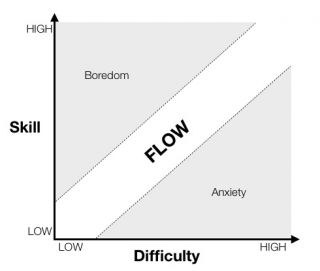Before I talk about how to reduce stress, I want to start off by stating that stress is not necessarily bad for you. As many of you already know, stress can actually be a good thing. From an evolutionary perspective, it can help you escape a dangerous situation (i.e., fight or flight), and from an everyday standpoint, it can help you get work done.
The Yerkes-Dodson law (see the illustration below) suggests that a moderate amount of stress leads to a state of ‘optimal arousal’ which leads to high performance. Conversely, less stress is associated with fatigue or sleepiness (low performance), and too much stress is associated with anxiety and impaired performance:
![Illustration of Yerkes-Dodson law [1].Â](https://www.researchgate.net/profile/Stojan_Trajanovski/publication/320592240/figure/fig1/AS:552985562447872@1508853440562/Illustration-of-Yerkes-Dodson-law-1.png)
Furthermore, in addition to enhancing performance, a moderate amount of stress helps you get stronger both physically and mentally. In his talk, Tal Ben-Shahar provides us with an example and says that when you go to the gym and workout, what are you doing with your muscles? You are stressing them. So when you go to the gym regularly and repeatedly stress your muscles, they become stronger.
If you’ve read my previous blog post on flow, you know that to reach a state of flow, or optimal experience, you need to be optimally aroused. In other words, when engaged in an activity, the challenge of the activity needs to match the level of skill you have. Too easy and you’ll be bored, and if the activity is too difficult, you’ll feel anxious. See the example below:

As you see, multiple psychological theories support this idea that stress is not bad. That being said, stress becomes a problem when it persists for long periods of time or exceeds healthy levels. So what can we do in these situations to reduce our stress or prevent us from feeling overly stressed in the first place?
The most effective way to reduce stress:
Exercising, meditating, talking to a friend, taking a nap, journaling… these are all examples of things you can do to reduce stress. However, they often only address the symptoms of stress, not the cause of it. While there are some causes of stress that are outside of our control (e.g., the loss of a loved one), we can control most things that cause stress.
So for those things that we can control, what is the most effective way to reduce stress? Take action.
Stressed about your upcoming exam? Study. Stressed about a project at work? Finish it. Stressed about a stupid argument that you got into with your spouse? Talk with your spouse and apologize. Stressed about your poor health? Eat better and start exercising. Stressed that you lost your job? Start applying for new jobs.
Think about it. If you’re stressing about an upcoming exam, there’s only one thing you can do to help you prepare for your exam – study. As you study, you’ll start feeling more prepared, and as a result, you’ll feel less stressed. If you are anxious that maybe you’ll develop high blood pressure or diabetes, then start eating healthier and start exercising. It’s not fun and it is not easy. However, over time, as you get healthier, you will start stressing less and less about your health.
Taking action is often the best way to reduce stress. The next best thing you can do to reduce stress is to focus on the process and on what you can control, and stop focusing on the outcome and what you cannot control. You can control how hard you work on an assignment, but not how well it is received by your boss (only your boss can control that).
Once you learn to take action and focus on the process instead of the outcome, stress will become your ally.

Thank you so much for this post. I’m an anti-bullying advocate and those who are bullied could use this information!
Great post!
LikeLike